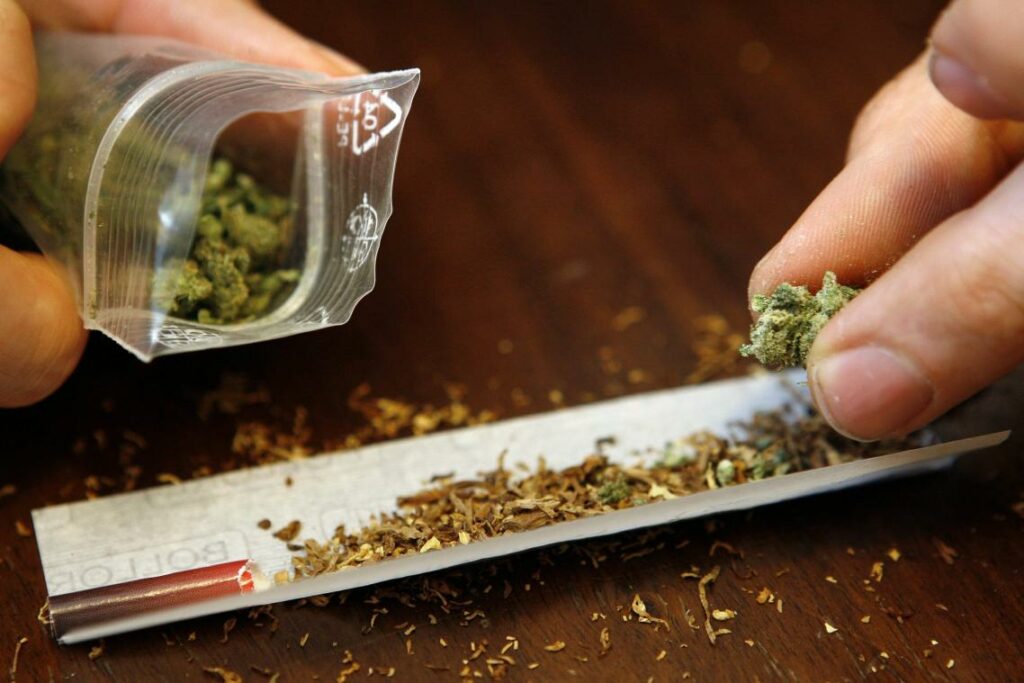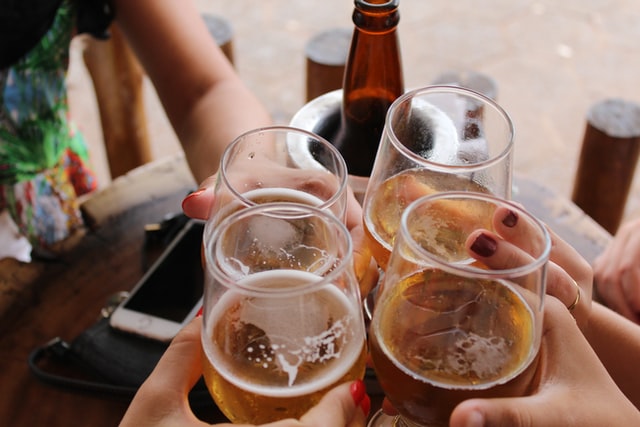The coronavirus crisis has had a clear impact on Flemish-speaking students' substance use, as they drank less alcohol but smoked (slightly) more cannabis. Still, most students generally handle alcohol and drugs sensibly, shows a recent survey by the Flemish Alcohol and other Drugs Expertise Centre.
From early February to mid-April 2021, students in Flanders and Dutch-speaking universities and colleges in Brussels drank significantly less alcohol than in the survey from four years ago. New research shows the average student drank nine glasses of alcohol per week last year, down from 13 glasses in 2017.
"We expected a drop in alcohol consumption. Students are real event drinkers, group drinkers, and we knew that less alcohol was consumed during Covid-19," Katleen Peleman, the Director of the Flemish Alcohol and other Drugs Expertise Centre, told The Brussels Times.
Still, the drop from 13 to nine glasses per week is significant, she said. "On top of that, the group that drinks below the health standard (fewer than 10 glasses per week) has also increased. We hope that this change will continue."
Related News
- More students in Flanders need extra time to obtain degree
- Youth alcohol consumption down, but binge drinking remains prevalent
- Auctioning off new students during 'baptism' abolished in Leuven
Peleman stressed that behind these general figures is a big disconnect between most students' actual alcohol consumption and the image of students portrayed in society. "Three-quarters of students drink fewer than ten glasses a week. Strikingly, they drink three on average."
However, the other quarter is made up of the students who are often in the picture, and drinks an average of 29 glasses a week. "That is completely different behaviour than the majority, of course. But this is the group that causes nuisances, that often ends up in the news and against whom municipalities or cities take measures."
For Peleman, more attention should be given to the large group of students that do not drink as much, given that the amount of alcohol consumed by students is overestimated strongly – both by society as a whole and students themselves.
This overestimation of alcohol consumption among peers likely also contributes to the fact that more than a quarter (26%) of students find it difficult to order or consume something non-alcoholic at a student activity or event, the survey showed.
1 in 4 used cannabis

Credit: Belga
While alcohol use declined, cannabis moved in the opposite direction: 24% of respondents had used cannabis in 2017, a figure that rose slightly in 2021, to 27%. Regular cannabis use, however, is not so common as just 8% of students used it at least once a week.
"Fortunately, regular use remains limited because it can lead to problems later," said Peleman, referring to difficulty quitting, continuing to use for longer than intended, or quitting activities and hobbies because of cannabis.
While the figures on cannabis use were not deemed to be surprising, the results for students' mental health and well-being were striking. "About four in 10 students report psychological issues, and three in ten report severe loneliness," she added. "Those are signs that mix somewhat with substance use."
Persistent coronavirus measures that were in force at the time most probably contributed to this, but experts are assessing to what extent certain patterns will stick now that the measures have been lifted.
"It remains necessary to focus on preventive measures around substance use for students," Peleman stressed. "At the moment the figures for alcohol seem to be a step in the right direction – but with the bars having been closed, that is not surprising."
'Prevention is more than putting up posters'
Now that student life is back to normal, consumption is likely to have increased again, according to her. "At the same time, we did see slight increases in illegal substance use in 2021, and a number of students started using stimulants more regularly. So continuing to focus on prevention is no needless luxury."
For the experts, a sustainable and effective preventive approach requires more than putting up a poster or distributing messages on social media. The centre is in contact with colleges and universities to help change the attitude and make it clear that it is in their own best interests to have a good alcohol and drug policy.
"We will work with the institutions to see what more can be done, how more attention can be paid to where things go wrong and how they can play a role in that," said Peleman. This could be through student doctors for example, but also through the professors, assistants and teachers who would be more alert.
Institutions could also play a role in prevention by providing better information about the risks, early detection, and to a certain extent also setting an example by offering non-alcoholic drinks at official receptions, for example.
Currently, students showing up to morning classes with a hangover or not showing up at all is often still viewed as something that is just part of student culture, according to her. "But that definitely falls into risky behaviour, and can certainly be a harbinger of possible problems later on in life."

